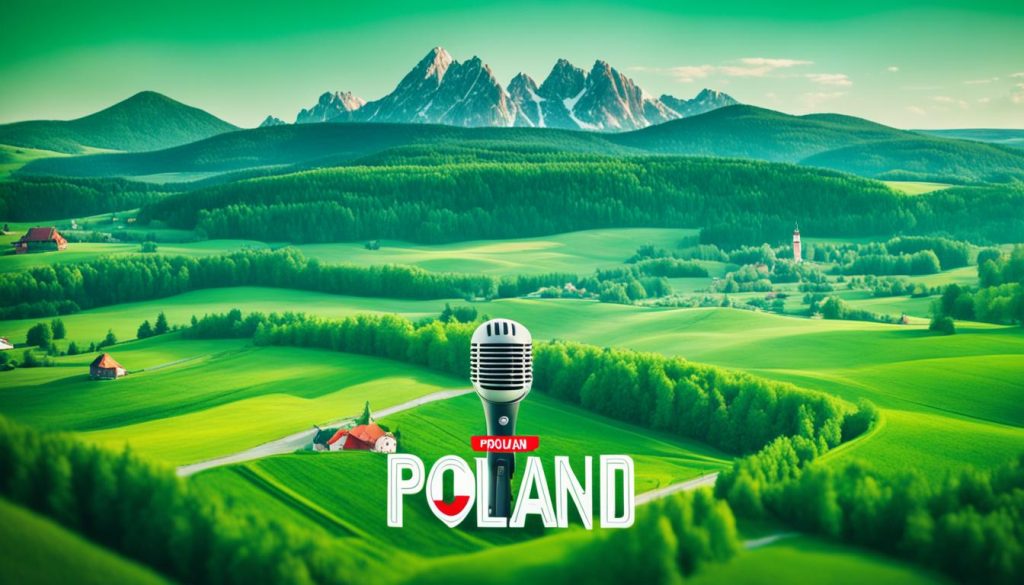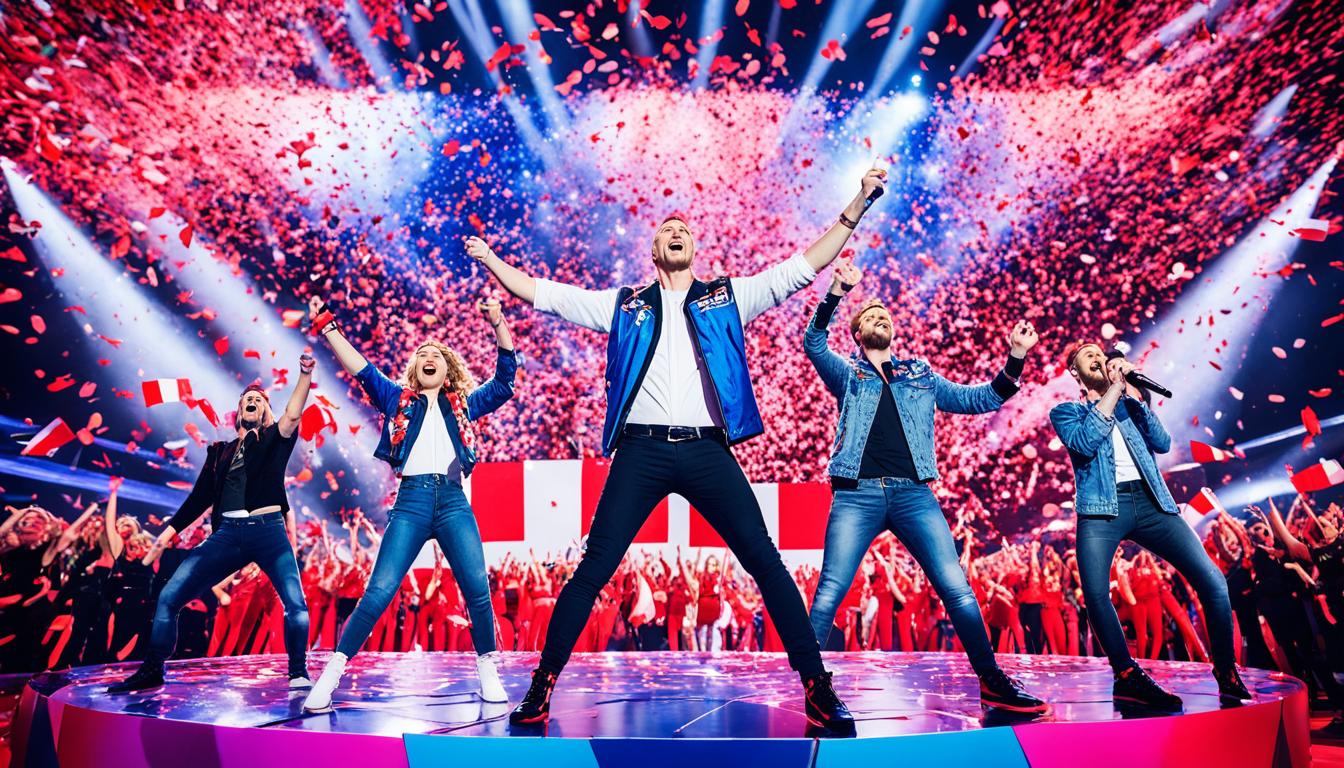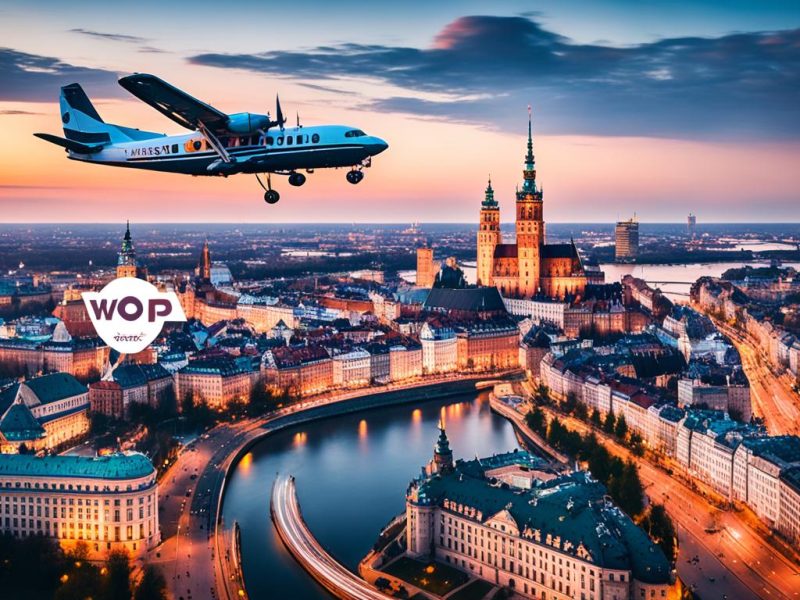The Eurovision Song Contest is a grand display of talent and European culture. Poland has been an important player on this stage. It has experienced both the joy of victory and the disappointment of lower rankings. Through its participation, Poland shows its commitment to music and diversity. This account highlights Poland’s Eurovision adventures, showcasing entrants who have left a mark on the contest’s history.
Key Takeaways
- Poland’s dedication to showcasing its culture and talent at the Eurovision Song Contest.
- Notable Polish Eurovision entrants who have made a significant impact on the competition.
- The evolution of Eurovision results for Poland reflecting a narrative of growth and resilience.
- The magnitude of Poland’s presence in shaping the Eurovision Song Contest’s heritage.
- Exploration of Poland’s Eurovision entries and their cultural significance.
Poland Eurovision: A History of Participation
Poland joined the Eurovision Song Contest and made a big splash. From its first song to recent ones, Poland’s entries tell a tale of creativity and cultural pride. Their journey shows how they’ve helped shape Eurovision’s mixed musical styles.
The Debut and Early Years
In 1994, Poland stepped onto the Eurovision stage for the first time. Their debut was bold, leaving a lasting impression. It laid the groundwork for Poland’s diverse music in the contest.
Memorable Polish Acts in Eurovision
Polish acts have stood out among Europe’s finest. From touching ballads to upbeat pop, they’ve made memorable moments. Their performances linger in fans’ minds, showcasing Poland’s rich music scene.
The Voting Pattern and Poland’s Scores
The votes in Eurovision tell many tales. Poland’s scores reflect both good times and tough ones. These numbers show how musical tastes and politics play a role in Eurovision’s scoring.

| Year | Act | Song Title | Final Score |
|---|---|---|---|
| 1994 | Edyta Górniak | To nie ja! | 166 |
| 2003 | Ich Troje | Keine Grenzen – Żadnych granic | 90 |
| 2016 | Michał Szpak | Color of Your Life | 229 |
Poland’s Eurovision history is filled with amazing acts and scores. Each year, Polish performers share their talents with Europe. Their unique songs reach out, touching audiences far and wide.
Poland’s Eurovision Success Stories
Poland has shone in the Eurovision Song Contest, thanks to several Poland Eurovision triumphs. These triumphs showcase the country’s strong musical talent. Polish artists have made unforgettable marks at Eurovision, showing the world the rich musical culture of Poland. Every time a Polish act does well, it proves that Poland is a big deal in European music. They have achieved a lot in Eurovision, making their music known all over Europe.
Edyta Górniak’s song in 1994 took second place, showing deep emotion. Then in 2019, Tulia brought a fresh, folk sound to the contest. These performances shared the unique spirit of Poland with the world. They left a lasting impression, adding wonderful moments to Eurovision’s history.
Some years were especially important in proving Poland’s strength in music. The table below shows some of their best results:
| Year | Artist | Song | Placement |
|---|---|---|---|
| 1994 | Edyta Górniak | To nie ja! | 2nd |
| 2016 | Michał Szpak | Color Of Your Life | 8th |
Michał Szpak’s performance in 2016, finishing in the top ten, shows Poland’s lasting impact. His song “Color Of Your Life” touched many across Europe. His powerful vocals left a memorable mark on Eurovision’s story.
These artists have played a key role in Poland’s Eurovision journey. Their music has been inspiring. It has become a part of Europe’s treasured musical tradition. Even as Eurovision continues, the memories of these performances make Poland proud. They inspire future artists to dream big.
Conclusion
Reflecting on the Eurovision Song Contest, it’s clear that Poland has had a big impact. Over the years, Poland has offered a variety of music, connecting with people worldwide. This has woven Polish talent into the rich fabric of Eurovision. Poland’s performances have shown its deep cultural roots and the uniting power of music.
Looking forward, Poland’s role in Eurovision seems bright. With a mix of old and new songs, Poland is set to keep bringing fresh and lively acts. Its determination to shine at Eurovision shows a deep love for music and culture. Eurovision is all about bringing countries together through music, and Poland truly embraces this.
Eurovision is more than just songs; it’s about bringing different cultures together. As we look to future contests, we hope Poland will keep enriching Eurovision’s cultural scene. With performances that showcase Poland’s evolving music scene, fans and experts alike can expect a continuation of artistic brilliance and cultural sharing.
FAQ
When did Poland first participate in the Eurovision Song Contest?
Poland joined the Eurovision Song Contest in 1994 for the first time.
What have been some of Poland’s most memorable acts in Eurovision?
Some unforgettable Polish performances include Edyta Górniak, who secured second place in 1994. The band Tulia also made an impact in 2019 with their unique folk sound.
How does the voting system in Eurovision impact Poland’s scores?
The Eurovision’s mix of jury and public votes can hugely affect Poland’s scores. This system reflects various musical tastes and sometimes geopolitical views.
Can you name a Eurovision success story for Poland?
Edyta Górniak’s performance in 1994 is a true Eurovision success for Poland. She gave Poland a strong second-place finish with “To nie ja!”
How has Poland’s participation in Eurovision evolved over the years?
Poland’s Eurovision journey began with a near win and has seen various music styles since. The country showcases its cultural diversity through its entries.
What does the future hold for Poland in the Eurovision Song Contest?
Poland is keen to build on past experiences and make a splash with new, culturally rich acts in Eurovision’s future.
How has Eurovision influenced Poland’s cultural standing in Europe?
Eurovision has let Poland share its music and culture with Europe. This has strengthened its cultural ties within the continent.



